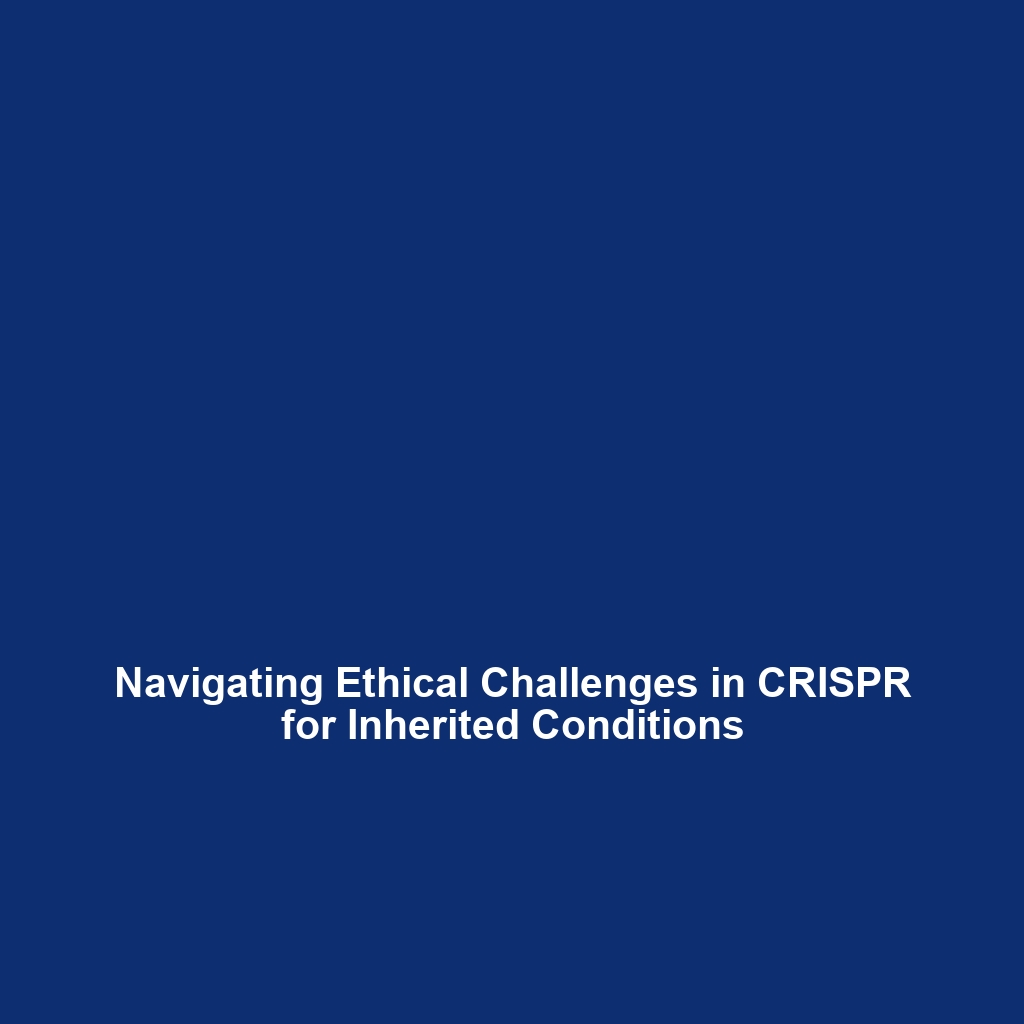Ethical and Practical Challenges in Treating Inherited Conditions with CRISPR Gene Editing
Introduction
The emergence of CRISPR gene editing technology has revolutionized the approach to treating inherited conditions. However, this innovation carries with it profound ethical and practical challenges that need to be addressed. Understanding these issues is critical as they not only impact scientific research but also shape public policy and healthcare practices. Navigating the moral landscape of gene editing, alongside the technical aspects, is essential for harnessing CRISPR’s full potential in effectively treating genetic disorders.
Key Concepts
Understanding Inherited Conditions
Inherited conditions, caused by genetic mutations passed from parents to offspring, encompass a diverse range of disorders including cystic fibrosis and sickle cell anemia. The ethical and practical challenges in treating these conditions with CRISPR gene editing are multifaceted.
Ethical Implications
- Consent: Obtaining consent for gene editing, especially in minors or embryos, raises ethical questions.
- Equity: Access to CRISPR technology may widen existing health disparities.
- Long-term Effects: The potential for unintended genetic consequences must be considered, raising safety concerns.
Practical Considerations
On a practical level, delivering CRISPR components effectively and safely to target cells remains a challenge, along with regulating the edits made by the technology.
Applications and Real-World Uses
The applications of ethical and practical challenges in treating inherited conditions through CRISPR gene editing are vast. Significant real-world uses include:
- Gene Therapy: CRISPR is utilized to correct genetic mutations responsible for inherited diseases.
- Animal Models: Researchers have created genetically modified animals to study inherited conditions and test therapies.
- Clinical Trials: Ongoing trials aim to assess the safety and efficacy of CRISPR treatments in humans.
Current Challenges
Despite its promise, there are several challenges of ethical and practical issues in treating inherited conditions with CRISPR:
- Need for comprehensive regulatory frameworks to ensure safe applications.
- Public skepticism regarding gene editing and its implications.
- Cost and accessibility of CRISPR therapies for affected populations.
- Technical limitations in targeting specific cells without off-target effects.
Future Research and Innovations
Upcoming research in ethical and practical challenges related to inherited conditions within CRISPR focuses on:
- Developing more accurate and efficient delivery mechanisms for gene editing components.
- Addressing safety concerns through advanced computational models to predict outcomes.
- Creating ethical guidelines reflecting societal values and scientific advancements.
These innovations are set to impact the future landscape of CRISPR gene editing significantly, making treatments more viable and ethically sound.
Conclusion
In conclusion, the ethical and practical challenges in treating inherited conditions are pivotal as they intersect with the evolving field of CRISPR gene editing. Addressing these challenges is essential for advancing healthcare solutions and ensuring equitable access to innovative therapies. Researchers, policymakers, and healthcare professionals must collaborate to navigate these complexities effectively. For further reading on CRISPR and inherited conditions, check our related articles on CRISPR Technologies and Ethical Guidelines in Biotechnology.
